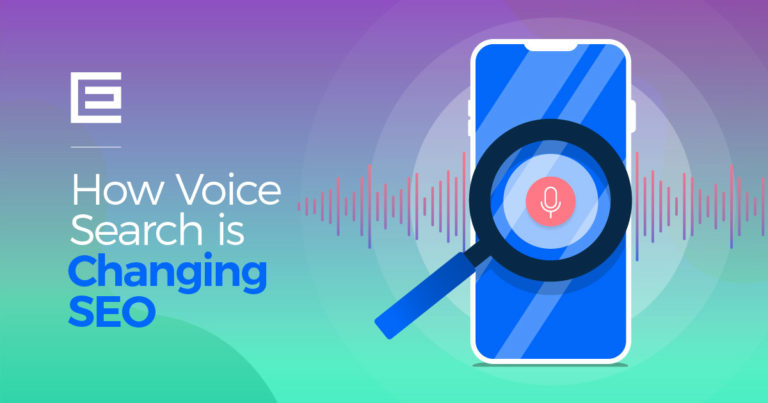When you’re building your business and building your online presence, you have a long to-do list.
While you can complete things that contribute to your success in SERPs (search engine results page), you’re never truly done with SEO… especially if you want to stay at the top.
Here, we will explore why an ongoing SEO service is vital to the success of your company, why SEO is never “done”, and why you can’t expect to stay at the top of search results forever.
What Is SEO and Why Is it So Important?
SEO stands for Search engine optimization. Organic SEO is a technique that makes it possible that your web pages will appear toward the top of search results in the major search engines like Google and Bing.
Why is being toward the top of the pack so important? Well, according to Forbes, 75% of users never scroll past the first page of results when they use a search engine. What’s more, you may think by purchasing paid ads you are bypassing this issue completely. However, according to User Centric, 70%-80% of users ignore the paid ads and go straight for the organic search results.
What does this mean for you and your business? It means that using SEO to get your business to the top of the results page is essential to bring web traffic (read: potential clients) to your website without ads.
This may sound like a one-and-done kind of task, but it is actually one part of your marketing that will need constant monitoring and adjusting.
SEO is an investment in your company and helps make sure your website is performing as well as it can. Keeping it in top shape requires constant analysis and adjustment. For example, you may discover that one of your webpages is not performing as well as others on your site. Ongoing SEO services will help you strategize how to boost engagement on that page as well instead of letting it sit on your site.
Can I Stay at the Top of Google Forever?
Short answer: NO! Especially if you don’t continually work on SEO.
Think of it like going to the gym: you hit the gym for a year and get in great shape. Then you stop exercising altogether. You’ll probably slowly lose the muscle you worked to build and gain back the weight you worked to lose.
SEO is the same way. As long as you’re putting effort into it, you’ll see results. But when you stop working on it, you’ll slowly lose your rankings.
This is where SEO professionals can really benefit your business. In addition to doing a variety of SEO activities, they are also able to look at your analytics to determine what’s bringing traffic and conversions and what might bring more.
Understanding Google’s Ranking Mechanism
Google ranks websites using a complex algorithm designed to find the most relevant and useful content for users based on their search queries. This algorithm considers over 200 factors, which can broadly be categorized into three main groups: relevance, authority, and usability.
- Relevance: Google determines relevance by analyzing if the content of a website matches the searcher’s query. It uses keywords and context to assess this match. The use of natural language processing (NLP) helps Google understand the intent behind queries and match them with content that answers the searcher’s intent.
- Authority: This is gauged by the quality and quantity of links pointing to the website from other reputable sites. A site that is linked to by many trusted websites is seen as an authoritative source on a subject. Google also considers factors like brand mentions and the reputation of a site or author.
- Usability: Google evaluates how user-friendly a website is. This includes the site’s mobile-friendliness, loading speeds, navigation structure, and the overall user experience. Sites that provide a positive user experience are typically ranked higher.
Recent Updates and Their Impacts on Rankings
Core Updates and Their Role
Google frequently updates its ranking algorithms to improve the quality of search results. These updates can significantly impact website rankings and traffic. Two notable types of updates are Core Updates and specific feature updates like the BERT or MUM updates.
- Core Updates: These are broad changes that affect how Google assesses content and ranks websites. They are designed to ensure that Google is fulfilling its mission to deliver relevant and authoritative content to users. After a core update, sites might see drastic changes in their rankings as the new standards for content quality and user engagement are applied.
- BERT and MUM Updates: BERT (Bidirectional Encoder Representations from Transformers) helps Google understand natural language better, particularly in conversational queries. MUM (Multitask Unified Model), which is 1,000 times more powerful than BERT, can understand and generate language and is capable of analyzing text, images, and videos together to provide more comprehensive answers to complex queries.
Impact of Updates
Websites that fail to adapt to these updates often see a drop in their rankings. For example, sites with low-quality content or those using outdated SEO tactics like keyword stuffing might lose rankings after a core update. Conversely, sites with well-researched, well-written, and useful content may see an increase in rankings.
Adapting to Changes in Google’s Algorithm
To maintain or improve rankings, webmasters and SEO professionals need to stay informed about these updates and adjust their strategies accordingly. This includes focusing on producing high-quality content, enhancing user experience, and ensuring the technical SEO aspects of their sites are up to date.
Understanding and adapting to Google’s ranking mechanisms and updates are crucial for any website aiming to achieve and maintain high rankings in search results.
The Myth of Forever Ranking
Explaining the Volatility of SEO Rankings
The notion of holding onto a #1 ranking on Google indefinitely really overlooks just how fluid and ever-changing search engines are. SEO is naturally unpredictable, with its ups and downs driven by an array of shifting elements—things like algorithm updates, what your competitors are doing, and evolving user behaviors all play a part.
- Algorithm Updates: As previously mentioned Google frequently updates its algorithms to improve the relevance and quality of its search results. Each update can shuffle the rankings, sometimes dramatically, as new criteria are prioritized.
- Competitive Landscape: The strategies implemented by your competitors are also evolving. As they optimize their websites, they can overtake your rankings. Your static strategy might not hold against their active efforts.
- Changes in User Preferences: Trends in user behavior can shift what people search for and how they search. For instance, the rise of mobile and voice search changed the landscape, prioritizing mobile-friendly and conversational content.
Key Factors Influencing Google Rankings
Quality and Relevance of Content
At the heart of SEO, the quality and relevance of the content you produce are critical. Google aims to provide users with the most relevant answers to their queries, and it measures this by how well your content matches the search intent. High-quality content is informative, well-researched, and directly aligned with the needs of your audience.
- Relevance: The content must directly address the queries of the user, incorporating appropriate keywords naturally and contextually.
- Quality: Content should be authoritative, providing depth and insight that other sources don’t. This includes correct information, good writing standards, and the incorporation of useful multimedia.
User Experience and Site Usability
Creating a Seamless User Journey
Google places a high premium on the overall user experience and usability of websites. A site that is easy to navigate, loads quickly, and provides a pleasant browsing experience will rank higher.
- Mobile Friendliness: With a significant portion of web traffic coming from mobile devices, a mobile-optimized website is essential.
- Navigation: Users should find it easy to explore your site and discover more content that interests them, minimizing bounce rates.
- Accessibility: Ensure that all users, including those with disabilities, can use and benefit from your site.
Backlinks and Site Authority
The Backbone of SEO: Link Building
Backlinks, or links from other websites to yours, are a major ranking factor. They act like votes of confidence, signaling to Google that others find your content valuable and trustworthy.
- Quantity and Quality: A large number of backlinks can help, but the quality of those links is crucial. Links from high-authority, reputable sites have more weight.
- Relevance: Links from sites that are relevant to your industry or topic are more beneficial than random links, as they help reinforce the authority of your site in a specific field.
Technical SEO and Site Performance
Ensuring Smooth Technical Operations
Technical SEO refers to the optimization of the infrastructure of your site, making it easier for search engines to crawl and index your content.
- Site Speed: Faster sites create happier users and tend to rank better. Google has explicitly mentioned speed as a ranking factor, especially for mobile searches.
- Secure and Accessible Website: Utilizing HTTPS is seen as a positive ranking signal by Google. Moreover, your site’s robots.txt files and sitemap help search engines crawl your site more effectively.
- Error-Free Experience: Regular audits to find and fix broken links, incorrect redirects, and crawl errors are vital to maintain a healthy website structure.
Mastering these key factors will significantly enhance your website’s visibility and ranking on Google, aligning it more closely with the search engine’s goal of delivering the best and most relevant results to users.
Strategies to Maintain High Rankings
Ongoing Content Updates and Relevance
Keeping Content Fresh and Relevant
To keep your rankings high, it’s important to continually update and refresh your content. This not only helps maintain its relevance over time but also signals to Google that your website remains active and up-to-date with the latest information.
- Update Old Content: Regularly revisiting old posts to update statistics, facts, and resources ensures that your content doesn’t become outdated.
- Add New Insights: Incorporating new developments or insights related to your topics can provide additional value to readers, which Google favors.
Continuous Keyword Research
Staying Ahead with Evolving Search Trends
Keywords are the foundation of SEO, and their landscape is ever-changing. Continuous keyword research helps you stay in tune with what your audience is searching for and how those search patterns change over time.
- Identify Emerging Trends: Tools like Google Trends or keyword research tools can help identify new keywords or phrases that are gaining popularity.
- Long-Tail Keywords: These are less competitive and more specific, often resulting in better conversion rates and easier rankings.
Importance of Adapting to Algorithm Updates
Navigating the Changing SEO Landscape
Google regularly updates its algorithms, sometimes making significant changes that can impact your site’s ranking. Adapting to these changes is critical to maintaining and improving your search engine visibility.
- Stay Informed: Keep up with SEO news and updates from Google to understand what changes are being made and why.
- Quick Adaptation: Implement changes in your SEO strategy as soon as possible to align with new algorithm updates, reducing the risk of losing rankings.
Role of A/B Testing and Data Analytics
Leveraging Data for Optimized Performance
A/B testing and analytics are essential for understanding how users interact with your site and what strategies are most effective in improving SEO performance.
- A/B Testing: This involves creating two versions of a webpage (A and B) and comparing them to see which performs better in terms of user engagement and conversion rates.
- Analytics: Use tools like Google Analytics to track traffic, bounce rates, and other important metrics. This data can help identify what’s working and what needs improvement.
Implementing these strategies ensures that your website not only maintains high rankings but also adapts to the evolving digital landscape, staying ahead of SEO trends and algorithm changes.
FAQs
Can Any Website Rank #1 on Google Forever?
No, it’s highly unlikely for any website to hold the #1 rank on Google indefinitely. Search rankings are inherently volatile due to ongoing changes in Google’s algorithms, competitive strategies, and evolving user behavior. Continuous effort in SEO and adaptation to these changes are essential to remain competitive in search rankings.
How Often Do Google’s Ranking Algorithms Change?
Google’s algorithms are updated hundreds of times a year, though most changes are minor and go unnoticed. Major updates, which can significantly affect rankings, occur several times a year. Staying informed through SEO news sources and Google’s own announcements is crucial to adapting strategies promptly.
What is the Best Strategy to Keep a Website at #1?
To sustain a top ranking, focus on:
- Quality Content: Consistently create and update content to remain relevant and authoritative.
- User Experience: Ensure the website is user-friendly, fast, and accessible across all devices.
- SEO Best Practices: Regularly review and optimize on-page and off-page SEO elements.
- Adaptability: Stay responsive to Google’s algorithm updates and adjust strategies accordingly.
How Do New Websites Compete with Established Ones on Google Rankings?
New websites can effectively compete by:
- Niche Targeting: Focusing on specific niches can reduce competition and increase visibility.
- Quality Over Quantity: Invest in high-quality, unique content that provides value beyond what existing sites offer.
- Technical SEO: Ensure technical SEO is flawless to give the site the best foundational start.
- Link Building: Develop a robust link-building strategy to gain authority quickly.
What are the Signs That Your SEO Strategy Needs Adjustment?
Signs that your SEO strategy may need a reassessment include:
- Declining Traffic: If organic search traffic starts falling, it’s a clear indicator that something may be off.
- Ranking Drops: Sudden drops in rankings for previously high-performing keywords can suggest issues with content relevancy or technical SEO aspects.
- Low Conversion Rates: If traffic is steady but conversions decrease, it may be time to optimize the user experience or revisit keyword targeting.
- Algorithm Updates: Post-update performance dips are a common sign that your site may not align well with the new algorithm criteria.
Step Up Your SEO with TheeDigital
There are a lot of marketing activities that require ongoing effort, and SEO is arguably the most important. Let the SEO specialists at TheeDigital take the reins so you can increase your bottom line while doing what you love most: running your business. Call us at 919-341-8901 or request your free site audit!






